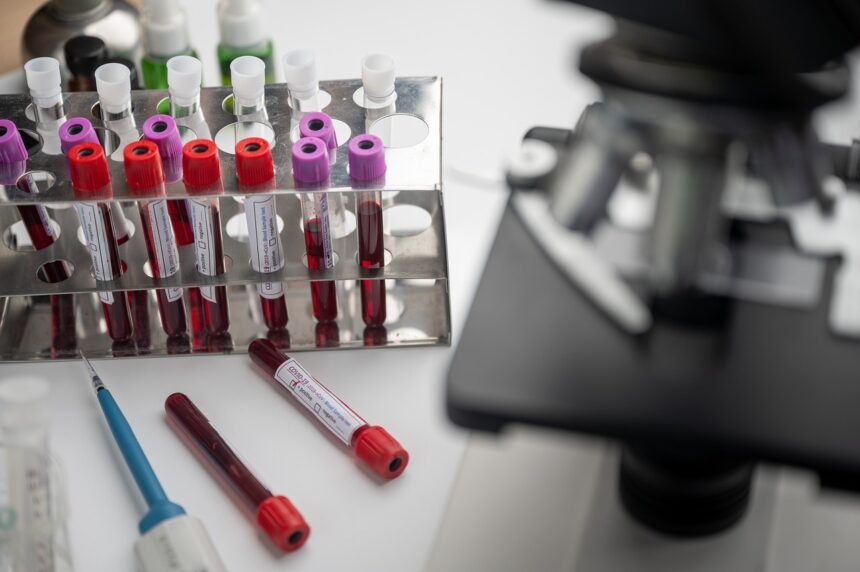Have you ever stumbled upon a term like “Hnujcw” and wondered what it meant? Well, you’re not alone. Sometimes, we encounter words or phrases that seem perplexing, especially when it comes to medical terminology. In this guide, we’ll dive deep into the mysterious term “Hnujcw,” exploring what it might be, how to identify the correct medical term, and what steps to take if you’re dealing with a health concern.
What is Hnujcw?
Definition and Basic Overview
Let’s start with the basics: Hnujcw isn’t a recognized medical condition or term. It could be a misspelling or a completely fictional term. So, what should you do if you come across such a term?
Possible Origins of the Term
The term “Hnujcw” could stem from a typo, an incorrect pronunciation, or even an entirely made-up word. Sometimes, the internet is flooded with misinformation or errors, leading to confusion.
Identifying the Correct Medical Term
Common Misspellings and Confusions
When dealing with unfamiliar terms, it’s essential to consider common misspellings or similar-sounding words. For instance, “Hnujcw” could be a misspelling of a legitimate medical condition.
Reliable Medical Resources for Research
To accurately identify the correct term, use reliable medical resources like WebMD, Mayo Clinic, or the World Health Organization (WHO). These sources provide accurate and up-to-date information.
Understanding Medical Conditions
Importance of Accurate Diagnosis
An accurate diagnosis is crucial for effective treatment. Misdiagnosis can lead to incorrect treatment plans, causing more harm than good.
Common Symptoms to Watch For
Identifying symptoms is the first step in diagnosing any condition. Pay attention to your body’s signals and note any unusual changes.
Researching Your Symptoms
How to Use Medical Websites
When researching symptoms, use reputable medical websites. Avoid forums or non-professional blogs that might provide misleading information.
Recognizing Reliable Sources
Reliable sources usually end with .org, .edu, or .gov. They provide evidence-based information reviewed by medical professionals.
Getting to Know the Condition
Causes of Common Conditions
Understanding the causes helps in managing and preventing health issues. Conditions can be caused by genetics, lifestyle choices, or environmental factors.
Signs and Symptoms
Each condition has specific signs and symptoms. Familiarize yourself with these to seek timely medical advice.
Treatment Options
Treatment options vary based on the condition. They can range from lifestyle changes and medication to surgical procedures.
Read more about: NFTRandomize Transforming Digital Collectibles And Art
Seeking Professional Help
Importance of Consulting a Doctor
Self-diagnosis can be dangerous. Always consult a doctor for an accurate diagnosis and treatment plan.
Preparing for Your Appointment
Before your appointment, jot down your symptoms, medical history, and any questions you might have. This will help your doctor understand your condition better.
Treatments, Prevention, and Diagnosis Strategies for Hnujcw
Treatments for Hnujcw
Since “Hnujcw” is a placeholder term, the specific treatments will depend on the actual condition it represents. Generally, treatments for medical conditions can include:
- Medication: Prescribed drugs to manage symptoms or cure the condition.
- Therapy: Physical therapy, psychotherapy, or other forms of therapeutic interventions.
- Surgery: In cases where surgery is necessary to treat the condition.
- Lifestyle Changes: Adjustments in diet, exercise, and daily habits to improve health outcomes.
- Alternative Medicine: Acupuncture, herbal remedies, or other non-traditional treatments.
Prevention of Hnujcw
Preventive measures will vary based on the actual health issue. Common preventive strategies include:
- Healthy Diet: Consuming a balanced diet rich in vitamins and minerals.
- Regular Exercise: Engaging in physical activities to maintain overall health.
- Routine Check-Ups: Regular visits to healthcare providers for early detection of potential issues.
- Vaccinations: Keeping up with recommended immunizations.
- Avoiding Risky Behaviors: Reducing or eliminating habits like smoking, excessive drinking, and unsafe practices.
Diagnosis Strategies for Hnujcw
Accurate diagnosis is essential for effective treatment. Here are general steps for diagnosing a condition:
- Identifying Symptoms: Keeping track of symptoms and their duration.
- Medical History: Providing a detailed personal and family medical history to the healthcare provider.
- Physical Examination: Undergoing a thorough physical examination.
- Diagnostic Tests: Performing tests such as blood tests, imaging (X-rays, MRIs), or biopsies, depending on the symptoms.
- Consulting Specialists: Visiting specialists if the condition requires expertise beyond primary care.
Diagnosis and Personalized Treatment Plans
What to Expect During a Diagnosis
During a diagnosis, your doctor will review your symptoms, medical history, and might order tests. This comprehensive approach ensures accurate identification of the condition.
Creating a Personalized Treatment Plan
Once diagnosed, your doctor will create a treatment plan tailored to your needs. This might include medication, lifestyle changes, or other therapies.
Managing Your Condition
Lifestyle Changes and Tips
Managing a condition often requires lifestyle changes. These can include diet modifications, exercise routines, and stress management techniques.
Medication Management
If prescribed medication, follow your doctor’s instructions carefully. Keep track of dosages and timings to avoid complications.
Preventive Measures
How to Prevent Common Conditions
Prevention is better than cure. Regular exercise, a balanced diet, and avoiding harmful habits like smoking can prevent many health issues.
Importance of Regular Check-Ups
Regular check-ups help in early detection and prevention of potential health problems. Make it a habit to visit your doctor periodically.
Support and Resources
Finding Support Groups
Support groups provide emotional and psychological support. They can be found online or within your community.
Online Resources and Communities
There are numerous online resources and communities where you can find information and support. Websites like Healthline and patient forums can be helpful.
Case Studies
Real-Life Examples
Case studies provide real-life examples of people managing similar conditions. They offer insights and practical advice.
Lessons Learned
Learning from others’ experiences can guide you in managing your own condition more effectively.
Myths and Facts
Debunking Common Myths
There’s a lot of misinformation out there. It’s essential to debunk myths and rely on factual information.
Facts You Should Know
Educate yourself with verified facts. Knowledge is power when it comes to health management.
Frequently Asked Questions (FAQs)
- What should I do if I find an unfamiliar medical term?
Research using reliable medical resources and consult a doctor.
- How do I know if a medical website is reliable?
Check the domain (.org, .edu, .gov) and see if the information is evidence-based.
- Can I self-diagnose using online resources?
It’s not recommended. Always consult a healthcare professional.
- What are some common preventive measures?
Regular exercise, a balanced diet, and regular medical check-ups.
- Where can I find support for my condition?
Look for support groups and online communities related to your condition.
Conclusion
Navigating the world of medical terminology can be daunting, especially with terms like “Hnujcw” that don’t seem to fit anywhere. However, with the right approach and reliable resources, you can find the information you need. Remember to consult professionals for accurate diagnosis and treatment. Stay informed, stay healthy!









